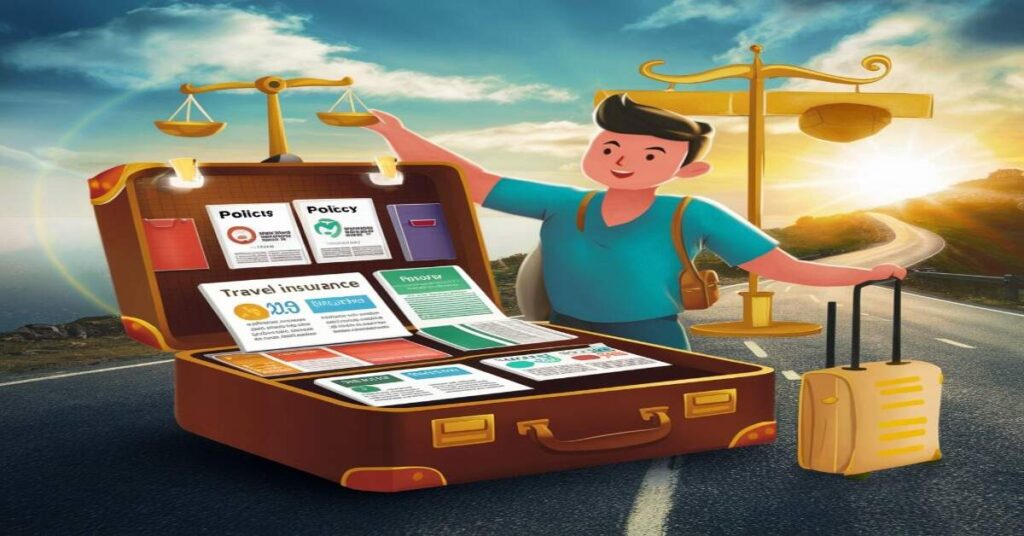In today’s fast-paced world, travel has become an integral part of our lives. Whether you’re jetting off for a well-deserved vacation, embarking on a business trip, or exploring new horizons, the excitement of travel often comes with a side of uncertainty. That’s where travelers insurance steps in, offering a safety net that can turn potential disasters into mere bumps in the road. Let’s dive into the world of traveler insurance and discover how it can unlock peace of mind for your next adventure. Unlocking Peace of Mind: A Comprehensive Guide to Travelers Insurance.
Types of Travelers Insurance Coverage

When it comes to travelers’ insurance, one size doesn’t fit all. Different policies offer various types of coverage to suit diverse needs. Let’s break down the most common types:
Trip Cancellation and Interruption Insurance
Picture this: You’ve spent months planning your dream vacation to Bali, but a week before departure, you break your leg. Trip cancellation insurance could be your financial savior in such situations. It typically covers:
- Non-refundable prepaid travel expenses
- Costs associated with cutting your trip short
- Reimbursement for unused hotel bookings or tour packages
Case Study: The Johnson family had to cancel their European tour due to a family emergency. Their trip cancellation insurance reimbursed them $5,000 for non-refundable flights and hotel deposits, allowing them to reschedule their trip for a later date without financial stress.
Medical Emergency Coverage
Your regular health insurance might not follow you across borders. Medical emergency coverage ensures you’re not left high and dry if you fall ill or get injured abroad. This typically includes:
- Emergency medical treatment
- Hospital stays
- Medical evacuation to the nearest adequate facility
“I never thought I’d need it until I did. Medical emergency coverage saved me from a $20,000 hospital bill in Thailand.” – Sarah, 28, travel blogger
Baggage and Personal Items Coverage
Lost luggage can turn a dream vacation into a nightmare. This coverage protects you against:
- Lost, stolen, or damaged belongings
- Delayed baggage (often providing funds for essential items)
- Personal item theft (like cameras or laptops)
Pro Tip: Always keep valuable items in your carry-on luggage to minimize risk.
Travel Delay Insurance
Flights get delayed, and connections are missed. Travel delay insurance can cover:
- Additional accommodation costs
- Meals during extended waits
- Transportation expenses
Emergency Evacuation Coverage
In extreme cases, you might need to be evacuated due to:
- Natural disasters
- Political unrest
- Severe medical emergencies requiring specialized care
This coverage can be a literal lifesaver, as evacuation costs can easily run into tens of thousands of dollars.
Choosing the Right Traveler Insurance Policy

Selecting the perfect policy isn’t just about finding the cheapest option. Consider these factors:
Assess Your Travel Plans
| Factor | Consideration |
|---|---|
| Destination | Developed vs. developing country, travel advisories |
| Duration | Short trip vs. extended stay |
| Activities | Relaxing beach vacation vs. adventure sports |
Evaluate Your Existing Coverage
- Check credit card benefits: Some premium cards offer limited travel insurance
- Review current health insurance: Understand what’s covered internationally
Compare Policy Limits and Deductibles
- Coverage maximums: Ensure they’re sufficient for your needs
- Deductibles: Higher deductibles often mean lower premiums, but more out-of-pocket costs if you claim
Read the Fine Print
- Exclusions: Common ones include pre-existing conditions and extreme sports
- Claim process: Understand how to file a claim before you need to
Tips for Buying Travelers Insurance
- Start shopping early: Policies bought within 14–21 days of your first trip payment often include extra benefits
- Consider annual policies for frequent travelers: Can be more cost-effective
- Look for 24/7 assistance services: Crucial for emergencies in different time zones
- Check for adventure sports coverage, if applicable: Regular policies often exclude “high-risk” activities
- Understand the claims process: Know what documentation you’ll need before you travel
Making a Claim on Your Traveler Insurance
If the unexpected happens, follow these steps:
- Contact your insurance provider immediately
- Gather all necessary documentation (medical reports, police reports, receipts)
- Fill out claim forms accurately and completely
- Submit your claim within the specified timeframe
- Follow up regularly on the status of your claim
Remember: Keep copies of all documents and correspondence related to your claim. Unlocking Peace of Mind: A Comprehensive Guide to Travelers Insurance.
Conclusion
Travelers insurance isn’t just another expense – it’s an investment in your peace of mind. By understanding the types of coverage available and how to choose the right policy, you’re taking a crucial step towards safer, more enjoyable travels. Don’t let the fear of the unknown hold you back from exploring the world. With the right traveler insurance policy, you can embark on your adventures with confidence, knowing you’re protected against life’s unexpected twists and turns.
FAQs
Why do I need traveler’s insurance?
Traveler insurance provides a safety net for unexpected events that can derail your trip. It offers financial protection against losses and access to emergency assistance when you’re far from home. Whether it’s a medical emergency, lost luggage, or a canceled flight, traveler’s insurance can turn potential disasters into manageable situations.
What types of coverage does traveler’s insurance offer?
Travelers insurance typically offers a range of coverages, including:
- Trip cancellation and interruption
- Medical emergencies
- Baggage and personal items
- Travel delays
- Emergency evacuation
Specialized options may also include coverage for adventure sports or rental car damage.
How do I choose the right traveler insurance policy?
Choosing the right policy involves:
- Assessing your travel plans (destination, duration, activities)
- Evaluating your existing coverage
- Comparing policy limits and deductibles
- Reading the fine print for exclusions and limitations
It’s crucial to compare multiple options and consider consulting with insurance professionals for personalized advice.
When should I purchase traveler’s insurance?
Ideally, you should purchase traveler insurance soon after making your first trip payment. Many policies offer additional benefits if purchased within 14–21 days of your initial trip deposit. However, you can typically buy a policy up until the day before you depart. Keep in mind that some benefits, like pre-existing condition waivers, may only be available if you purchase early.











